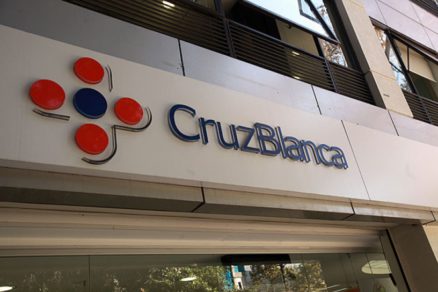Original article: Ex subsecretario de Piñera Gabriel Ruiz-Tagle pierde recurso y sigue firme su condena por uso de información privilegiada en Blanco y Negro
Former Subsecretary Gabriel Ruiz-Tagle’s Conviction Upheld for Insider Trading in Blanco y Negro Case
The Fourth Chamber of the Santiago Court of Appeals unanimously rejected the nullity appeal filed by Gabriel Ruiz-Tagle Correa’s defense, thereby confirming his conviction for insider trading. The former Minister of Sports during Sebastián Piñera’s first government and ex-president of Blanco y Negro (Colo-Colo) was sentenced for selling company shares using confidential information on May 29, 2018.
The ruling, issued in case role 5.641-2025 by judges Dobra Lusic, Matías de la Noi, and attorney Renée Rivero, dismissed any legal errors in the original sentence handed down by the Fourth Criminal Court of Santiago last September. This sentence imposed a 30-day prison term on Ruiz-Tagle, which was replaced by a one-year conditional discharge, along with a suspension from public office during the conviction, and an additional two-year prohibition from holding managerial positions.
«The nullity appeal filed by the defense of sentenced Gabriel Ruiz-Tagle Correa against the verdict of September 10, 2025, issued by the Fourth Criminal Court of Santiago in case RIT 305-2025, RUC no. 1901291428-0, is rejected; consequently, it is not null,» noted the ruling.
Sale of Colo-Colo Shares Using Financial State Information
It’s important to remember that according to the case presented by prosecutor Jaime Retamal from the High Complexity Center North: «The conviction is based on events that took place on May 28, 2018, when Ruiz-Tagle sold 4 million shares of Colo-Colo. The investigation established that this sale occurred after he became aware of the company’s financial statements.»
This information allowed him to anticipate a rise in stock prices «before it became known to the market.» Accordingly, he sold this share package for around 1.2 billion pesos.
«This is punishable because he was a director of the company; he was not allowed to operate in the market, as mandated by law for decades,» prosecutor Retamal explained.
The appellate court ruling stated that Gabriel Ruiz-Tagle deliberately used insider information related to the securities issued and traded by the company in the Santiago Stock Exchange, specifically public offering shares of Blanco y Negro S.A., which corresponds to the Colo-Colo Sports Club, in the voluntary execution of a series of stock sales transactions that occurred in May 2018. He was privy to vital information that could potentially affect the market price of Blanco y Negro shares on May 28, 2018.
“Once he obtained the privileged information detailing the Financial Statements of Blanco y Negro S.A., he acted on May 29, 2018, in the Santiago Stock Exchange, through the company Inversiones III S.A., instructing executives of this investment firm, who, via the brokerage firms Larraín Vial and Banchile, sold shares of Blanco y Negro S.A. one day before the recorded loss in the Financial Statements of B and N was disclosed to the Commission for the Financial Market (an event that occurred on May 30, 2018) and a day prior to this news being made public,” it indicated.
According to the ruling, the total number of Colo-Colo shares sold by the accused was
4,003,293, which yielded a total financial gain of $1,228,146,456, «after the specified sales in the stock market of the Santiago Stock Exchange.»

Court of Appeals Confirms Gabriel Ruiz-Tagle’s Conviction
The Court of Appeals ruling focused on dismantling the central argument of the defense, which claimed an error in the application of the law. The court was clear in stating that the crime is constituted by the mere deliberate use of privileged information, regardless of other regulatory periods.
«According to the cited regulation, the main verb of the type of crime outlined in Article 60, letter e), of Law No. 18.045 is to ‘deliberately use’ insider information by anyone mentioned in Article 166 when conducting transactions or operations of public offering securities in the market. As can be appreciated, the regulation does not refer or connect to Article 16 or the blocking period that it foresees, resulting in full coherence with the general prohibition on using insider information, as established in the aforementioned Article 165,» it stated.
One crucial point of the ruling was dismissing the alleged ignorance or error regarding a «blocking period» that Ruiz-Tagle’s defense presented as excluding intent. The Court decisively stated that such an argument is legally irrelevant for this crime.
«(…) thus, from all of this, it follows that, contrary to the defense’s assertions, it is not an element of the type of crime provided in Article 60, letter e) of Law No. 18.045 that the use of insider information happened during any potential blocking period that the issuer of securities might have regarding what is set forth in Article 16 of the same Law; therefore, the knowledge, ignorance, or error that the active subject of the offense may have experienced regarding the existence and/or extent of this period is, in the words of Professor Cury, irrelevant since it does not fall within an element of the type, hence it is a non-excluding error of intent and cannot, therefore, lead to the defendant’s acquittal,» it indicated.
The appellate court concluded that what Ruiz-Tagle may have suffered was not a mistake that negated his intention (dolo), but rather a «vincible prohibition error,» which does not create grounds for exoneration.
«Thus, rejected that the alleged ignorance the accused experienced could configure an error that excludes intent (…) it cannot prosper (…) especially considering that, under the circumstances described, this Court shares the comprehensive reasoning of the impugned ruling based on which it concludes that what the accused suffered was, in truth, a vincible prohibition error that therefore does not exclude intent nor lead to his acquittal,» it stated.
Consequently, the conviction against the former subsecretary of Piñera and ex-president of Blanco y Negro remains firm, closing a legal chapter that sets a precedent in prosecuting the crime of insider trading in the Chilean stock market.
You can access the court ruling here:









